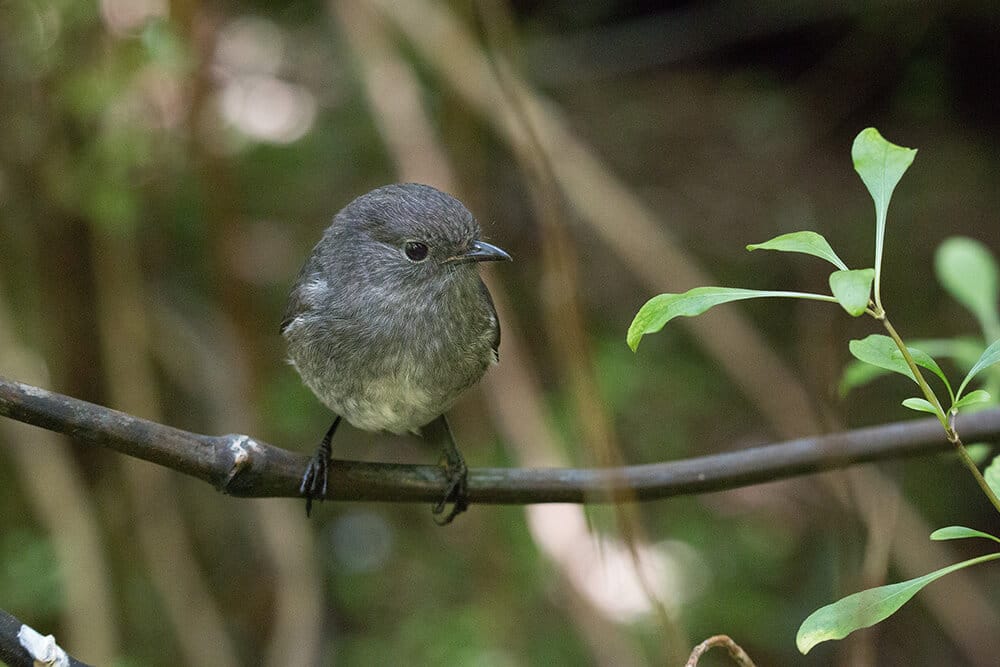For the first time in more than a century, kakaruai/South Island robin have produced chicks on Motupōhue/Bluff Hill.
Seven chicks, from three sets of parents, have been sighted so far this summer and hopes are high for more as the season progresses.
Bluff Hill Motupōhue Environment Trust chairperson Estelle Leask says the chicks are the result of nine years of hard work controlling pests and predators on the hill – a Ngāi Tahu tōpuni/sacred site.
“It has been many decades since the call of the kakaruai has been heard on Motupōhue. We’ve been working tirelessly with partners and volunteers to return the bird song back to Bluff and this is the ultimate reward.”
Earlier this year, 41 kakaruai/South Island robin were translocated from Waikaia to establish a new population with the assistance of the Department of Conservation (DOC).
The species, along with many other native birds and lizards, had once flourished in the area, but introduced pests had decimated the populations.
DOC senior ranger Rosalind Cole says thanks to the efforts of the Trust over the past nine years, Bluff Hill’s flora and fauna were beginning to regenerate at an inspiring level.
“DOC has been working alongside the trust for many years now and is proud to support their efforts to make Motupōhue a safe haven for native species once more.
“Intensive pest control for rats, cats, stoats and possums is having such a positive impact that birds that were all but lost to the area are able to breed and rebound.”
Estelle Leask says along with the kakaruai/South Island robin, other bird species such as the Foveaux shag, penguins and other seabirds are beginning to thrive.
“With the warmer weather lately, locals have been leaving their windows open at night and we’ve received many accounts of people hearing ruru/morepork in the night. People are also saying they’re being woken up at 4.30am by a dawn chorus of tui and other birds around the town.
“When we think back to how silent the forests were just a decade ago, I can’t think of a better reward.”

